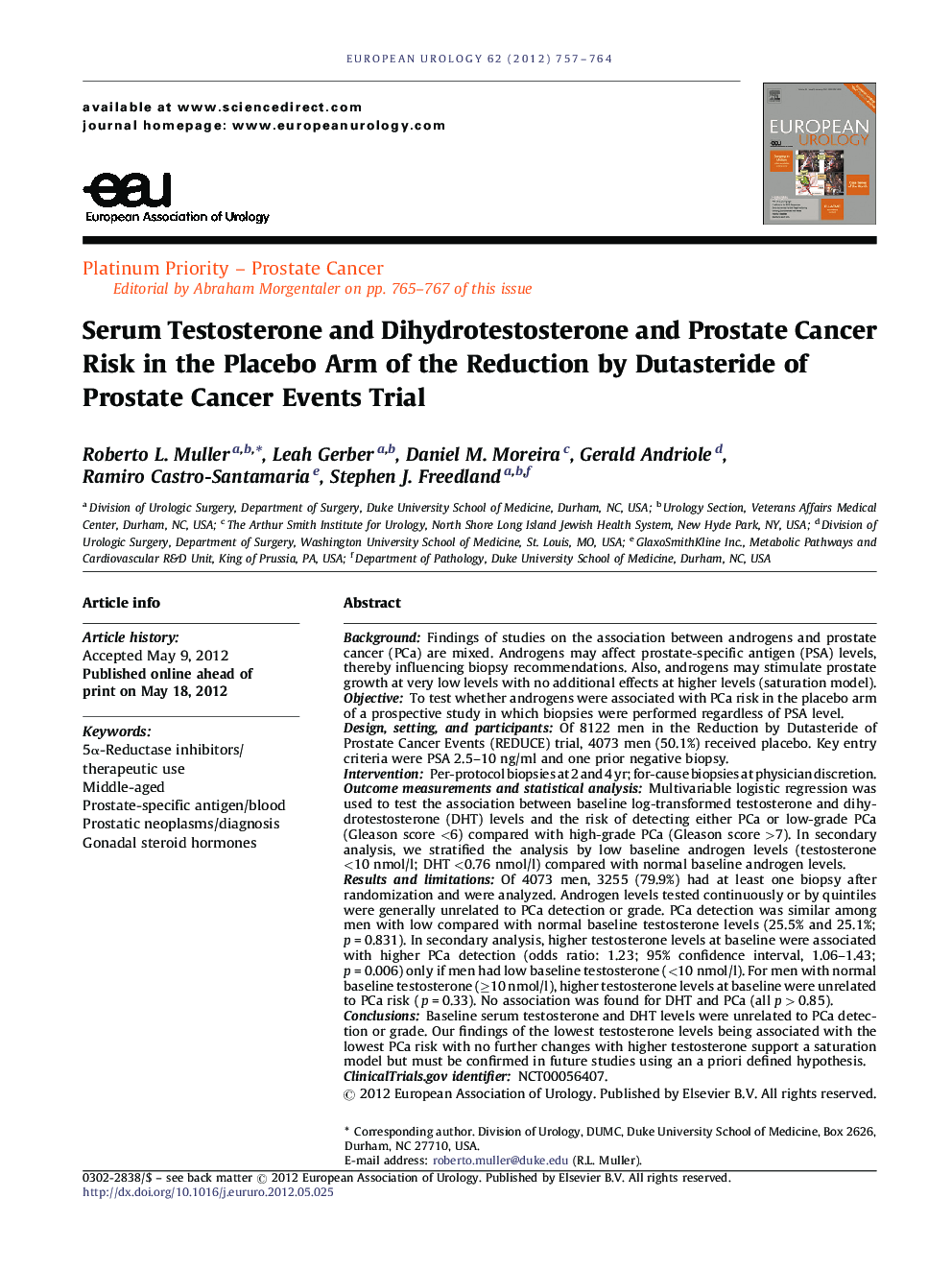| کد مقاله | کد نشریه | سال انتشار | مقاله انگلیسی | نسخه تمام متن |
|---|---|---|---|---|
| 3925677 | 1253133 | 2012 | 8 صفحه PDF | دانلود رایگان |

BackgroundFindings of studies on the association between androgens and prostate cancer (PCa) are mixed. Androgens may affect prostate-specific antigen (PSA) levels, thereby influencing biopsy recommendations. Also, androgens may stimulate prostate growth at very low levels with no additional effects at higher levels (saturation model).ObjectiveTo test whether androgens were associated with PCa risk in the placebo arm of a prospective study in which biopsies were performed regardless of PSA level.Design, setting, and participantsOf 8122 men in the Reduction by Dutasteride of Prostate Cancer Events (REDUCE) trial, 4073 men (50.1%) received placebo. Key entry criteria were PSA 2.5–10 ng/ml and one prior negative biopsy.InterventionPer-protocol biopsies at 2 and 4 yr; for-cause biopsies at physician discretion.Outcome measurements and statistical analysisMultivariable logistic regression was used to test the association between baseline log-transformed testosterone and dihydrotestosterone (DHT) levels and the risk of detecting either PCa or low-grade PCa (Gleason score <6) compared with high-grade PCa (Gleason score >7). In secondary analysis, we stratified the analysis by low baseline androgen levels (testosterone <10 nmol/l; DHT <0.76 nmol/l) compared with normal baseline androgen levels.Results and limitationsOf 4073 men, 3255 (79.9%) had at least one biopsy after randomization and were analyzed. Androgen levels tested continuously or by quintiles were generally unrelated to PCa detection or grade. PCa detection was similar among men with low compared with normal baseline testosterone levels (25.5% and 25.1%; p = 0.831). In secondary analysis, higher testosterone levels at baseline were associated with higher PCa detection (odds ratio: 1.23; 95% confidence interval, 1.06–1.43; p = 0.006) only if men had low baseline testosterone (<10 nmol/l). For men with normal baseline testosterone (≥10 nmol/l), higher testosterone levels at baseline were unrelated to PCa risk (p = 0.33). No association was found for DHT and PCa (all p > 0.85).ConclusionsBaseline serum testosterone and DHT levels were unrelated to PCa detection or grade. Our findings of the lowest testosterone levels being associated with the lowest PCa risk with no further changes with higher testosterone support a saturation model but must be confirmed in future studies using an a priori defined hypothesis.ClinicalTrials.gov identifierNCT00056407.
Journal: European Urology - Volume 62, Issue 5, November 2012, Pages 757–764